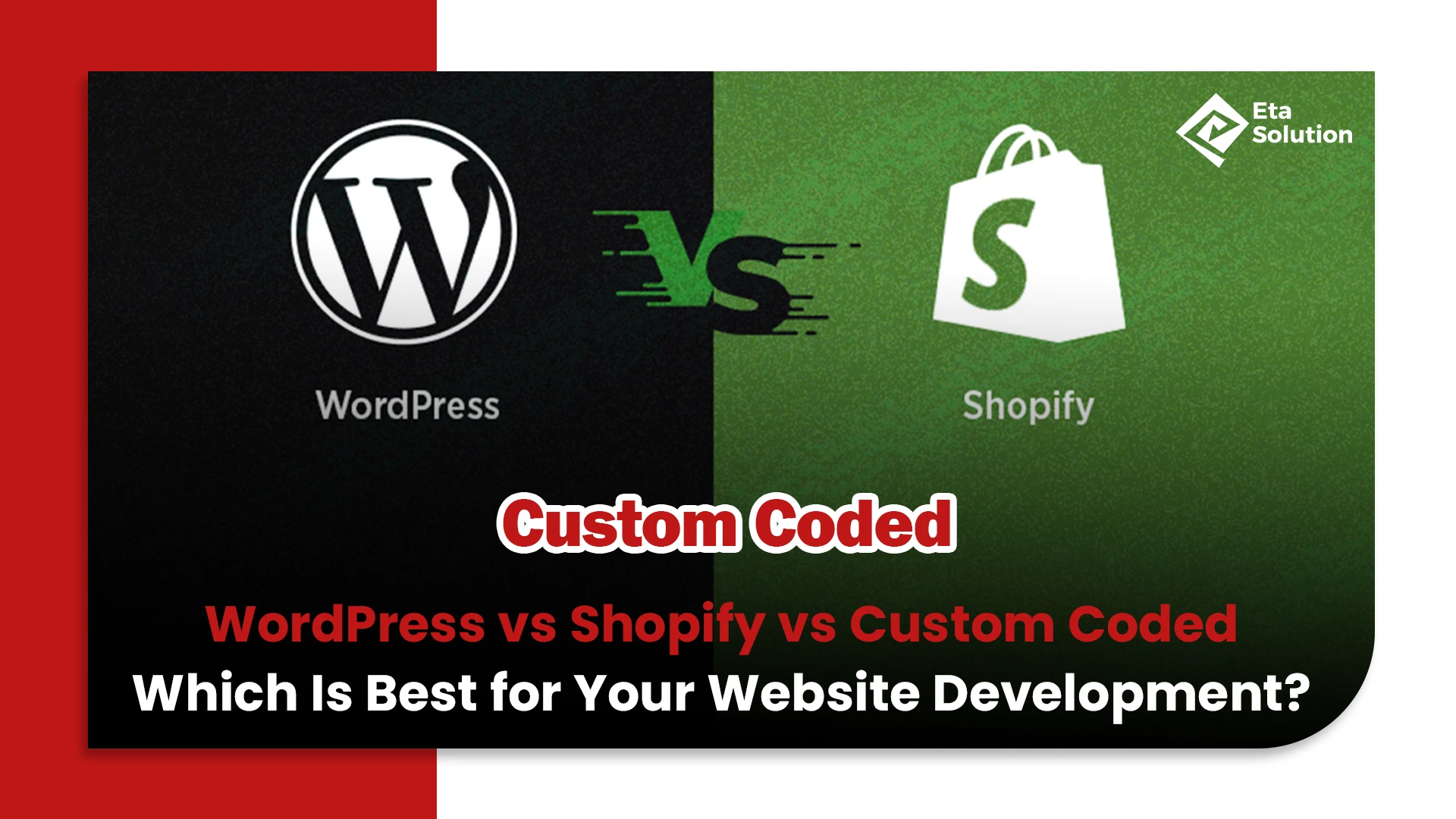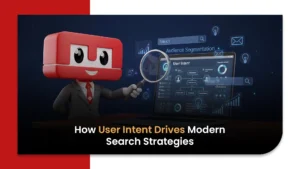
WordPress vs Shopify vs Custom Coded: Which Is Best?
As of 2025, 43% of all websites on the planet leverage WordPress, and Shopify accounts for more than a 20% share of the eCommerce platforms market – but that is where the story starts. Many highly successful digital businesses are facilitated, somewhat behind the scenes, by custom coded websites.
Whether you are a CEO of a company considering a digital expansion long term, a VP-level marketing professional seeking campaign flexibility, or a business owner tracking ROI, this CMS comparison will allow you to walk through a tangible consideration of WordPress, Shopify, and custom coding solutions.
As some of the best WordPress development companies in Ahmedabad will tell you, your choice of platform is not just technology; it is a strategy.
1. A brief overview of every platform
What Is WordPress?
It began as a blogging platform and has become an open-source content management platform that can be used for anything from an eCommerce shop to a corporate website. Websites such as The Walt Disney Company and TechCrunch run on it.
Shopify: The Question!
An entirely hosted eCommerce platform and platform that focuses strongly on speed, security, and ease of use. Branding through Shopify helped Gymshark and Allbirds scale quickly through their plug-and-play system.
Custom Coded Web Development: What Is It?
There are languages such as HTML, CSS, JavaScript, PNP, and so on, with which to write up from scratch custom-coded sites. Mostly, bigger business entities are the users of these mainly because they provide customized functionality and high-performance capabilities without being tied down with templates or plugins.
Which types of websites you can create” using WordPress, Shopify, and Custom-Coded platforms

2. Usability & Learning Curve
- WordPress: Provides a moderate learning curve. Page or website builders such as Elementor make things simple, but backend setup and plugin conflicts require experience.
- The simplest of the three is Shopify. Even without coding experience, anyone can open a store in a matter of hours.
- Personalized Code: steep learning curve. For setup, updates, and modifications, developers are needed. Ideal for companies with long-term developer support or technical teams.
3. Customization & Flexibility in Web Design
- WordPress: Thousands of themes and plugins make it incredibly customizable. On the other hand, too many plugins may affect performance.
- Shopify: Template-driven web design. Customization is possible, but limited unless you use Liquid.
- Custom Coded: Unlimited customization. You control every pixel and function. Ideal for brands where website flexibility equals brand identity.
Quick Insight: Studies show that 61% of users are more likely to buy from a site that offers a personalized experience. Custom-coded sites can offer this at an unmatched level.
4. E-commerce Capabilities
- Shopify: Made especially for internet merchants. Among the features are automated tax calculations, inventory control, and integrated payment systems.
- Although powerful, WordPress (WooCommerce) needs add-ons to function properly. Although it requires more setup, it offers greater flexibility than Shopify.
- Custom Code: Custom eCommerce systems can outperform both, despite requiring a larger initial investment and taking longer to develop.
Real Example: Fashion retailer Everlane used a custom-coded backend to integrate sustainable product tracking, a feature impossible with Shopify or WordPress without major workarounds.
5. Scalability & Performance
- WordPress: Scalable, but hosting and plugin management are critical. Poor setups slow down your site.
- Shopify: Scales well for product count and traffic, but is limited in backend logic customization.
- Custom Code: The most scalable option. You can build for millions of users with an optimized architecture from day one.
Netflix, Airbnb, and PayPal none run on templates. They are custom-coded.
6. Security Features
- Shopify: Handles security internally, PCI compliance, SSL, and regular updates.
- WordPress: Depends on your setup. Security plugins are essential, but third-party risks remain.
- Custom Code: Security is custom-built. With the right developers, you get full control. However, it also means security is your responsibility.
7. SEO & Marketing Tools
- WordPress: SEO-friendly by default. Plugins like Yoast and Rank Math offer granular control.
- Shopify: Decent built-in SEO. Limitations include URL structure and metadata customization.
- Custom Code: Can be extremely SEO-optimized, but only if your developer understands platform features that impact SEO.
Stat Alert: WordPress Websites have been shown to receive 47% more organic traffic than Shopify stores in competitive niches, mainly due to better control over SEO structures.
8. Maintenance & Support
- Shopify: Minimal maintenance. Their team handles updates and hosting.
- WordPress: Regular plugin/theme updates and backups are required.
- Custom Code: Needs a development team for every update, fix, or feature add-on.
9. Cost Comparison
Platform | Initial Cost | Ongoing Cost | Development Cost |
WordPress | Low (themes & plugins) | Medium (maintenance, hosting) | Medium |
Shopify | Monthly fee + transaction % | Predictable | Low |
Custom Code | High | High | Very High |
Tip: While custom coded websites seem expensive upfront, they reduce long-term plugin or platform dependency, which can add hidden costs on platforms like Shopify.
10. Best Fit & Use Cases
- WordPress: Perfect for small-to-medium eCommerce, service providers, and websites with a lot of content.
- Shopify: Ideal for companies looking for a speedy launch and product-focused online stores.
- Custom Code: Ideal for feature-rich, high-traffic companies where website development is essential to daily operations.
11. Developer Dependency
- Shopify: Least dependent. Most things are DIY.
- WordPress: Moderate dependency. A non-technical user can manage after the setup.
- Custom Code: High dependency. Always requires developer involvement.
Insider Fact: Many high-traffic businesses maintain in-house developer teams just to handle the evolving needs of their custom-built web systems.
12. Community & Resources
- WordPress: Massive global community. 55K+ plugins and themes.
- Shopify: Strong eCommerce-focused ecosystem. Official and third-party apps.
- Custom Code: No fixed community, but forums and GitHub can be invaluable.
13. Future-Proofing
- WordPress: Continuously evolving but dependent on plugin health and backward compatibility.
- Shopify: Actively updated but lacks control over major system changes.
- Custom Code: Fully future-proof if coded modularly and kept up to date. You’re not at the mercy of third-party platforms.
Final Thoughts:
The answer depends on your business model, growth trajectory, and available resources.
- If you’re looking for quick market entry with minimal technical complexity, Shopify is the way.
- If content is your strength and you want plugin-supported flexibility, WordPress offers an excellent balance.
- If you’re building a long-term, high-traffic product or brand with complex logic and custom workflows, custom coded websites are unmatched.
As your business becomes more complex, the top WordPress development companies in Ahmedabad advise starting with WordPress and moving on to custom code. This is the route taken by many prosperous brands.
A lot of entrepreneurs believe the platform is only the framework. In actuality, your platform determines your growth rate, conversion rate, and scalability. If your backend is unable to handle traffic spikes or keep up with marketing campaigns, it doesn’t matter how nice your user interface looks or how cheap you have set it up.
Thus, what you need to consider prior to going ahead with a platform is what your website is going to need in the future, as well as what you need today.
Shopify is the best choice for eCommerce if you want an easy, ready-to-use solution. It’s built specifically for online stores, with tools for payments, inventory, and shipping. WordPress (with WooCommerce) also works well but may need more setup and plugins. A custom-coded site can be powerful but is expensive and time-consuming to build and maintain, so it’s best for large businesses with specific needs.
WordPress is flexible, beginner-friendly, and great for blogs, service websites, and even small online stores. You can customize it easily with themes and plugins. However, it can get slow or insecure if not managed properly, and sometimes plugins conflict or break. Still, it’s a popular choice because of its ease of use and huge support community.
For most small businesses, a custom-coded website is not necessary. It offers complete control and uniqueness but comes at a high cost for development and updates. Platforms like WordPress or Shopify usually provide everything a small business needs, at a lower cost and with faster setup. Custom-coded sites are better suited for large businesses with complex requirements.
Both Shopify and WordPress can be optimized for SEO, but WordPress offers more control through plugins like Yoast SEO. You can fine-tune almost everything. Shopify has good built-in SEO features, but some advanced customizations are limited. So, if SEO is a big focus, WordPress may give you more flexibility and tools to work with.
All three platforms can scale, but the right choice depends on your goals. Shopify is easy to scale for eCommerce, with built-in tools and hosting. WordPress can scale too, especially with the right hosting and plugins. Custom-coded websites offer the most control for large or unique platforms but require more technical management and higher budgets as you grow.

What started as a passion for marketing years ago turned into a purposeful journey of helping businesses communicate in a way that truly connects. I’m Heta Dave, the Founder & CEO of Eta Marketing Solution! With a sharp focus on strategy and human-first marketing, I closely work with brands to help them stand out of the crowd and create something that lasts, not just in visibility, but in impact!

How User Intent Drives Modern Search Strategies

20 Marketing KPIs to Track & Improve in 2026


